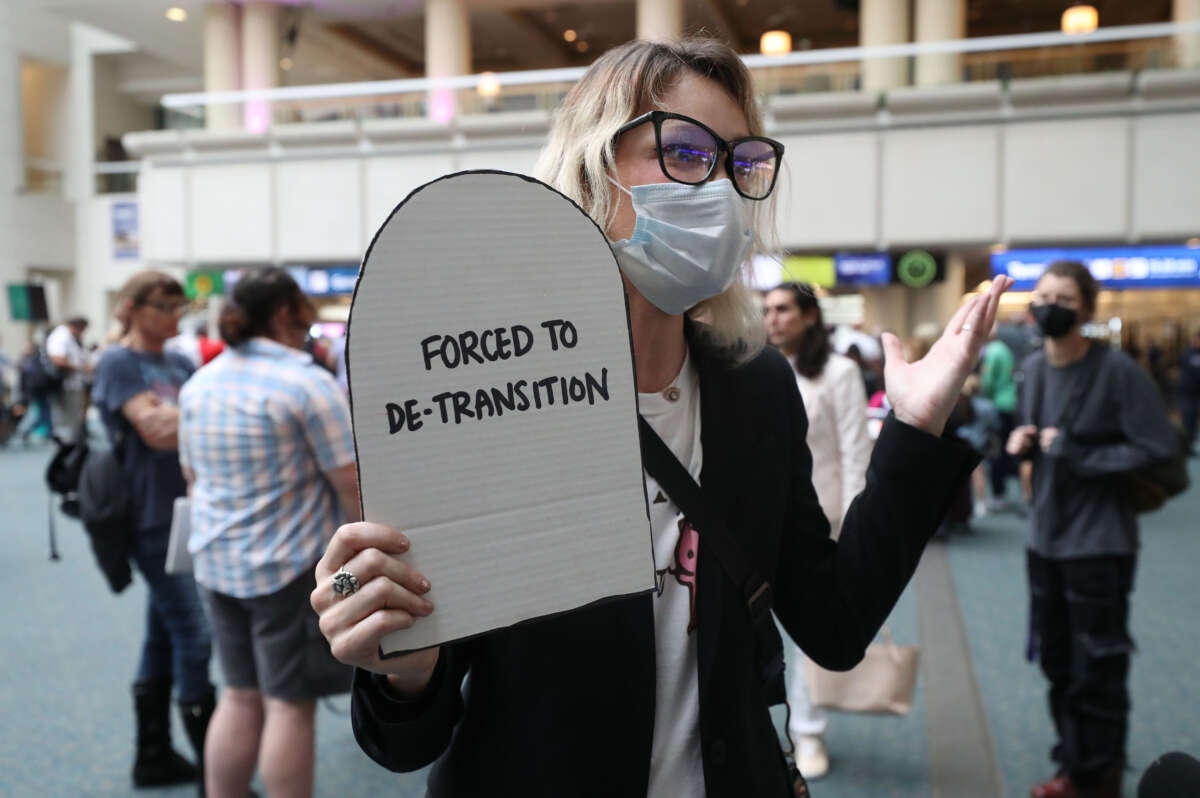A federal judge has denied a motion to block enforcement of a Florida law that restricts gender-affirming healthcare for transgender adults while the legal challenge to the law continues.
In May, Florida joined more than a dozen other states in banning gender-affirming healthcare for transgender youth. While Senate Bill 254, signed into law by Republican Gov. Ron DeSantis, does not explicitly ban gender-affirming care for transgender adults, it sets up significant barriers for transgender adults to access needed treatment.
The suit brought against the law, Doe v. Ladapo, alleges that many transgender adults in the state have had to delay or forgo their care as a result of the law. Two of the four adult plaintiffs in the lawsuit, who are represented by GLBTQ Legal Advocates & Defenders (GLAD), the National Center for Lesbian Rights (NCLR), Southern Legal Counsel and the Human Rights Campaign Foundation, say that they have not been able to obtain hormone treatment from providers they were seeing previously. The other plaintiffs in the case say that their scheduled gender-affirming surgeries were canceled by doctors who cited the law.
“Florida’s SB 254 is part of a broader landscape of laws that are hurting transgender people in Florida and across the country,” attorneys representing the plaintiffs in the case said in a statement. “We will continue to challenge these dangerous bans that deliberately single out transgender people for discriminatory treatment and ignore well-established medical research until they are permanently overturned.”
In June, District Court Judge Robert Hinkle partially blocked the law’s restrictions on gender-affirming care for transgender youth, holding that there is “no rational basis for a state to categorically ban these treatments.” However, the same federal judge has refused to issue a preliminary injunction against the portions of SB 254 that affect adults, finding that plaintiffs did not show that they are likely to suffer irreparable harm if the law is not blocked.
“The state’s restrictions on well-established health care in SB 254 serve no purpose other than to intentionally prevent transgender people from receiving the care they need,” attorneys for the plaintiffs said in a statement. “This case is far from over and we will continue to take every legal step to challenge this law that takes away Floridian’s ability to make important decisions about their own lives and hands it over to the government instead.”
The federal Judge also noted that plaintiffs’ likelihood of success in this case is “significantly lower” after a three-judge panel of the U.S. Court of Appeals for the 11th Circuit, which covers Florida, Georgia and Alabama, lifted an injunction against Alabama’s ban on gender-affirming care for transgender youth. The plaintiffs in the Alabama suit have requested that the full 11th Circuit reconsider the ruling. A federal judge in Georgia last week also lifted her injunction against the state’s law which bans hormone treatments for transgender youth, citing the 11th Circuit panel’s ruling.
A full trial addressing both the Florida restrictions on adult care and the state’s bans on care for transgender youth is scheduled for November.
“We are preparing now for the trial in November at which we intend to lay out the full evidence of the state’s deliberate targeting of transgender Floridians through the harmful, arbitrary, and medically unjustified rules enacted in SB 254,” attorneys representing the plaintiffs said in a statement.
Media that fights fascism
Truthout is funded almost entirely by readers — that’s why we can speak truth to power and cut against the mainstream narrative. But independent journalists at Truthout face mounting political repression under Trump.
We rely on your support to survive McCarthyist censorship. Please make a tax-deductible one-time or monthly donation.
